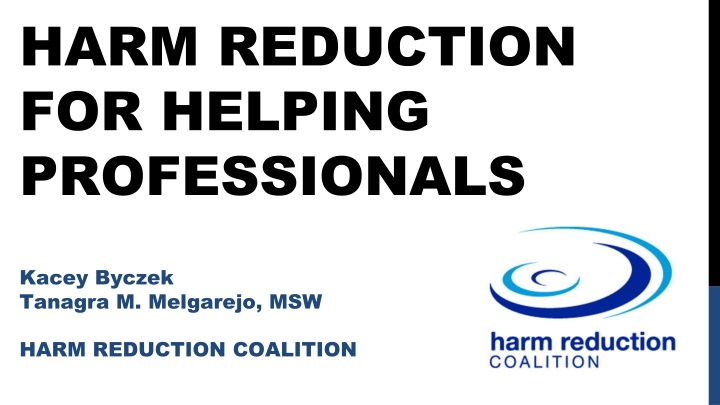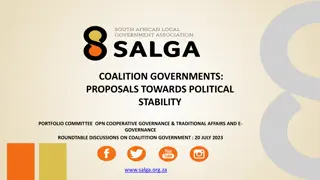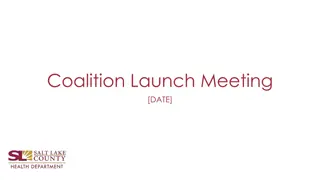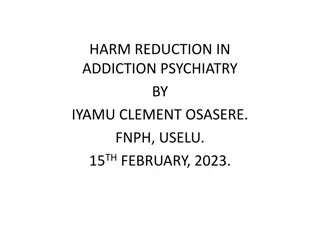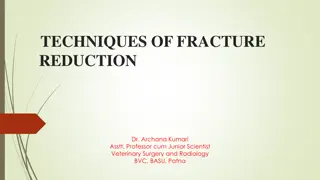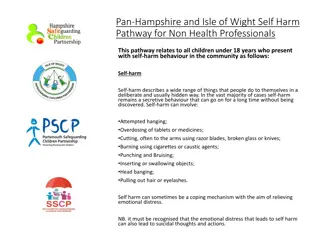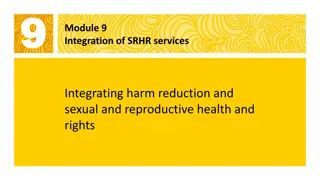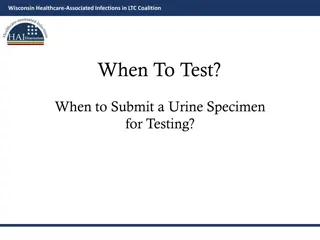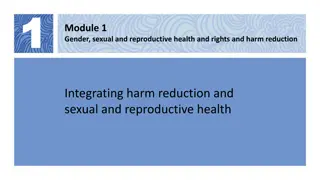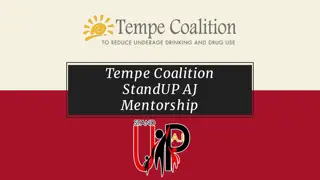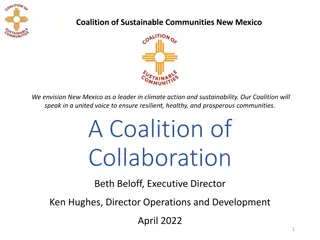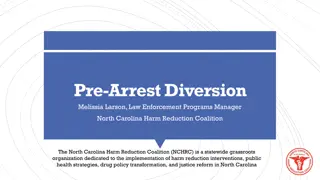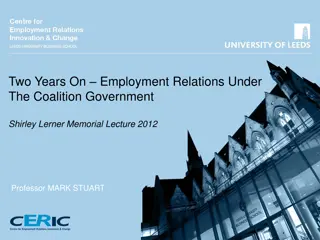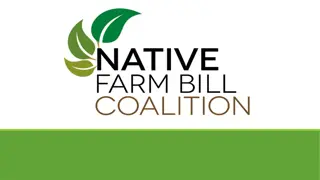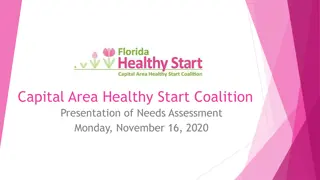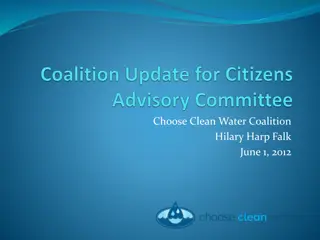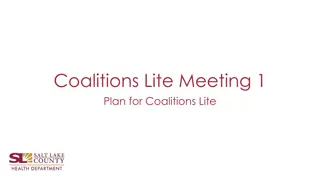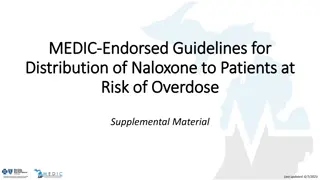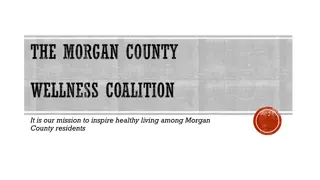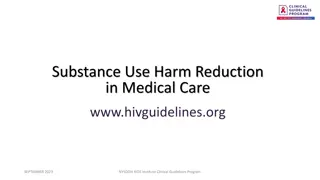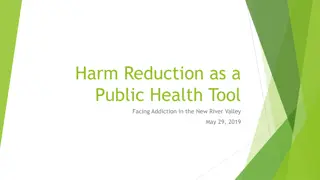Harm Reduction Coalition Workshop
Dive into stress management techniques and community care in helping professions with a focus on harm reduction. Explore the impacts of stress, resilience, and self-care strategies to enhance well-being.
Uploaded on Feb 15, 2025 | 0 Views
Download Presentation

Please find below an Image/Link to download the presentation.
The content on the website is provided AS IS for your information and personal use only. It may not be sold, licensed, or shared on other websites without obtaining consent from the author.If you encounter any issues during the download, it is possible that the publisher has removed the file from their server.
You are allowed to download the files provided on this website for personal or commercial use, subject to the condition that they are used lawfully. All files are the property of their respective owners.
The content on the website is provided AS IS for your information and personal use only. It may not be sold, licensed, or shared on other websites without obtaining consent from the author.
E N D
Presentation Transcript
HARM REDUCTION FOR HELPING PROFESSIONALS Kacey Byczek Tanagra M. Melgarejo, MSW HARM REDUCTION COALITION
Harm Reduction Coalition Overdose Overdose Prevention Prevention Policy & Policy & Advocacy Advocacy Trainings & Trainings & Technical Assistance Technical Assistance National & Regional National & Regional Conferences Conferences Resources & Resources & Publications Publications
ZOOM HOUSEKEEPING Please turn your camera on if possible, and mute your mic unless you are speaking Add your Pronouns to your name. Click the Chat menu so you can comment and see peoples responses to questions Use Reaction functions to let us know how you are feeling! We are going to take a couple breaks, but feel free to take care of yourself Tech issues happen, let s just roll with them!
TRAINING OBJECTIVES TRAINING OBJECTIVES By the end of this workshop, you will be able to: 1. Explore positive and negative impact of stress on ourselves 2. Share stress reduction techniques to try on and off shift 3. Reflect on how we can engage in sustaining community to care for each other 4. Discuss how community care supports our work in harm reduction or other social justice fields
AGENDA 1. Workshop Overview 1. The Impact of Caring 1. Understanding Resilience 1. Resilience and Community Care 1. Closing/Evaluations
GROUP AGREEMENTS Take Space, Make Space Use I Statements WAIST (Why Am I Still Talking?) Vegas Rule Say It Rough! One Diva, One Mic
ACTIVITY! STRESS SCALES
STRESS SCALE Indicate your Stress Level on a scale from 0 ? STRESSED out at all and 10 is extremely STRESSED out 10, where 0 is not 2 8 3 4 5 0 1 6 7 9 10 Where are you now? Where would you like to be? What would help you get there?
SOCIAL SUPPORT SCALE Indicate your Social Support Level on a scale from 0 ? is NOT SUPPORTED at all and 10 is extremely SUPPORTED. 10, where 0 2 8 3 4 5 0 1 6 7 9 10 Where are you now? Where would you like to be? What would help you get there?
SELF CARE SCALE Indicate your Self Care Level on a scale from 0 ? practicing SELF CARE at all and 10 is so incredibly SELF CARED 10, where 0 is not 2 8 3 4 5 0 1 6 7 9 10 Where are you now? Where would you like to be? What would help you get there?
WHAT ARE SOME OF THE IMPACTS OF CARING ABOUT YOUR CLIENTS AND WORK?
WHAT DRIVES US TO CARE WHAT DRIVES US TO CARE ABOUT OTHERS? ABOUT OTHERS? Altruism I m putting aside my concerns and taking action for your wellbeing Compassion I see and share in your emotions, and will help ease your suffering Empathy I see your suffering AND I share those feelings with you Sympathy I see your suffering and I have concern. I want to see you happy Pity I see your suffering and it makes me sad, or distressed INCREASING STRESS INCREASING STRESS
UNDERSTANDING STRESS UNDERSTANDING STRESS Hans Selye s definition of stress (1936): The non-specific response of the body to any demand for change o Being exposed to ongoing toxic stress (trauma) in the womb can affect development of organs like the kidneys, heart, and brain o Body releases hormones which increase heart and breathing rates, tell your muscles to get ready To fight, run, or play dead
The Impact of Stress on The Impact of Stress on Helping Professionals Helping Professionals Stress Long Term (Chronic) Short Term Compassion Satisfaction Compassion Fatigue Resilience Burnout
COMPASSION FATIGUE BURNOUT Quick Onset More Gradual Isolation from others High achievers most at risk Most empathetic people at risk Mental, physical, emotional exhaustion Feelings of meaningless, hopelessness Affects view of workplace Reduced sense of meaning or accomplishment in work setting Reduced ability to feel sympathy and empathy Change of job or duties can help resolve it Burnout and CF can occur together, or separately Due to repeated exposure to the trauma of others Related to systems and institutions Shares aspects of PTSD
Resilience Self Regulation Self Regulation Self Care Self Care Self Awareness Self Awareness S T R E S S
Self- How do you regulate your behavior and actions? Regulation How do you stay aware of what is happening in your body, mind, and spirit? Self- Awareness How do you take care of yourself in order to continue living your life and doing this work? Self Care
WHAT ARE SOME TECHNIQUES YOU USE TO MANAGE STRESS AND TAKE CARE OF YOURSELF?
HOW DO SELF CARE AND COMMUNITY CARE RELATE TO EACH OTHER?
HOW DOES YOUR ORGANIZATION SUPPORT STAFF EXPERIENCING STRESS OR BURNOUT?
IDEAS FOR PROVIDING COMMUNITY CARE AT YOUR ORGANIZATION Offering individual & group clinical supervision Encouraging new staff to shadow co-workers in each department, to understand the complexity of each organizational role Set a lunch schedule, so that everyone knows when they take lunch & feels able to leave the office for their break Share opening & closing responsibilities across departments
WHAT IS CLINICAL SUPERVISION? Clinical supervision is a regular meeting between a licensed professional and a staff member (or several staff members) meant to increase counseling skills & troubleshoot difficult situations with participants Often weekly, biweekly, or monthly You don t need to have an official caseload to benefit from clinical supervision Outreach and fixed site SSP workers, drop-in managers, secondary/peer distributors, and anyone else who comes into contact with participants can benefit from discussing stressful situations that arise on the job Helps in establishing boundaries with participants!
BREAKOUT GROUP DISCUSSION How does your organization or team practice community care? What are some ways you could do it better? Whose role is it to create space for self care and community care? The worker, manager, or institution?
Thank you for participating Thank you for participating in this online training! in this online training! training@harmreduction.org
